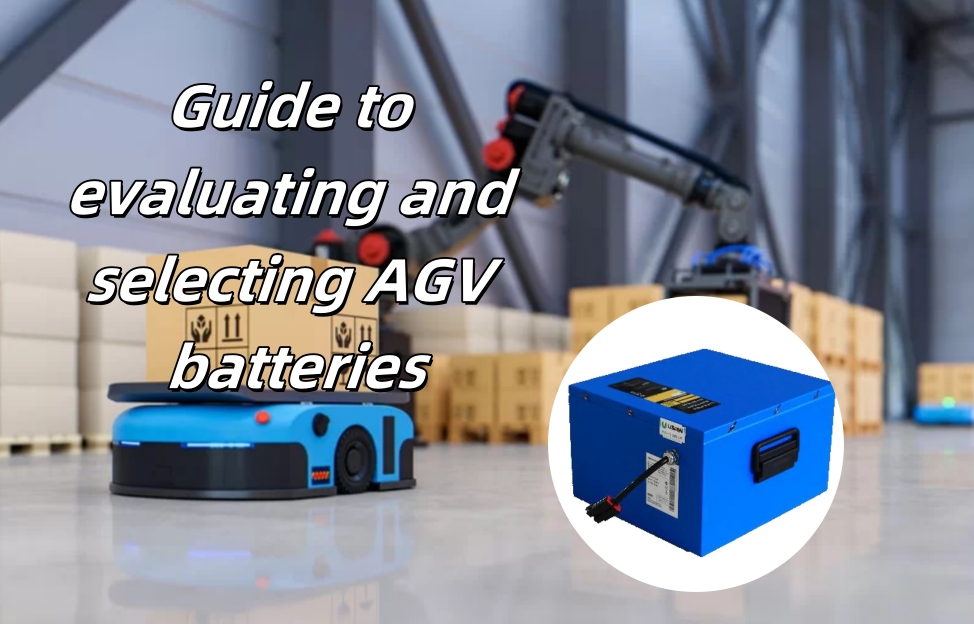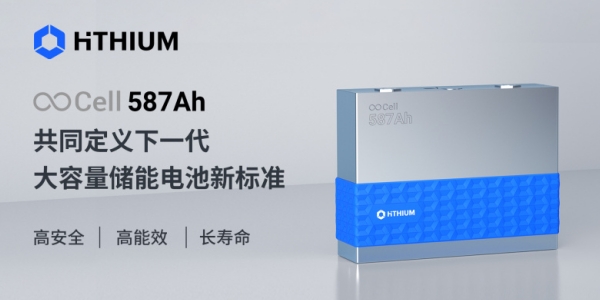Choosing the Right AGV Battery Doesn’t Have to Be Hard: How to Evaluate and Pick the Best One for Your Needs
AGVs (Automated Guided Vehicles) are becoming increasingly intelligent and efficient alongside the rapid development of artificial intelligence. One of the most critical components of an AGV is its battery. Specifically designed for AGVs, these batteries play a vital role—if the battery fails, the entire AGV stops functioning. That’s why properly evaluating and selecting the right AGV battery is crucial to maintaining smooth production workflows.

Typically, we evaluate battery performance based on the following parameters:
1. Cycle Life: The more charge-discharge cycles a battery can handle, the longer its lifespan—reducing replacement frequency and costs.
2. Battery Management System (BMS): A BMS protects against overcharging, overcurrent, and overdischarge while providing real-time battery status monitoring.
3. Operating Temperature Range: A wider temperature range ensures the battery performs reliably in various working environments.
4. Charge/Discharge Rate: This directly affects how fast the battery charges and discharges, which impacts AGV efficiency—especially under heavy workloads.
5. Cell Chemistry: The chemical stability of the battery cells is directly tied to overall battery safety.
How to choose the right battery for your AGV?
Based on these evaluation criteria, here’s how to choose the right battery for your AGV:
First, identify the type of AGV battery your vehicle requires.
The main types of AGV batteries available are: Nickel-Cadmium (NiCd) batteries, Nickel-Metal Hydride (NiMH) batteries, Lead-Acid batteries and Lithium Iron Phosphate (LiFePO4) batteries.
· Nickel-Cadmium batteries: Featuring nickel oxide as the positive electrode and cadmium hydroxide as the negative electrode , with a nominal voltage of 1.2V. They have low internal resistance, can be charged quickly, provide high current for loads, and maintain a stable discharge voltage, with more than 500 charge-discharge cycles. However, they suffer from memory effect if not fully discharged before recharging and contain toxic heavy metal cadmium, harmful to the environment and health.
· Nickel-Metal Hydride batteries: The use of good conductive metal materials, the rated voltage of the single is 1.2V, can be large current discharge, no pollution, resistance to overcharge and overdischarge, but the cost is high, the charging time is long, the high temperature resistance function is poor, easy to cause heating and out of control.
· Lead-Acid batteries: Easily obtainable raw materials with low production costs, but they are heavy, have low charging efficiency, long charging times, and a short cycle life (generally around two years). Lead, being a heavy metal, requires proper handling to avoid environmental pollution.
· Lithium Iron Phosphate battery: the positive material is lithium iron phosphate and the negative material is carbon,with a single cell rated voltage of 3.2 V. Its advantages include: wide operating temperature range (-20℃~60℃), high energy density, long cycle life (100% DOD>2000), excellent safety performance, low self-discharge rate, no memory effect, and light weight.
Determine the operating cycle and load speed of different types of AGV batteries:
First determine the daily work cycle of AGV. If 24/7 continuous working hours are required, it is recommended to choose lithium iron phosphate battery with long cycle life, fast charging speed and high safety quality; if the working cycle is short and the frequency is low, you can choose lead-acid battery with lower price.
For AGV with high load and speed requirements, it is necessary to choose batteries with high output power and light weight, and lithium iron phosphate batteries are recommended.
In addition to the above factors, when choosing AGV batteries, you should also consider the environment and safety of the AGV application, and select the battery that is suitable for you. In this regard, we recommend that you communicate with our customer service. We will consider all factors comprehensively, so that you can choose the right AGV battery at the lowest cost.
As a supplier of AGV batteries, we recommend lifepo4 AGV batteries with an intelligent BMS system that monitors battery status in real time and prevents overcharge, overdischarge, overheating, overcurrent and short circuit. In addition, we offer customized AGV battery integration solutions (cell +BMS+ structure). If you have any specific requirements, please feel free to contact us.

